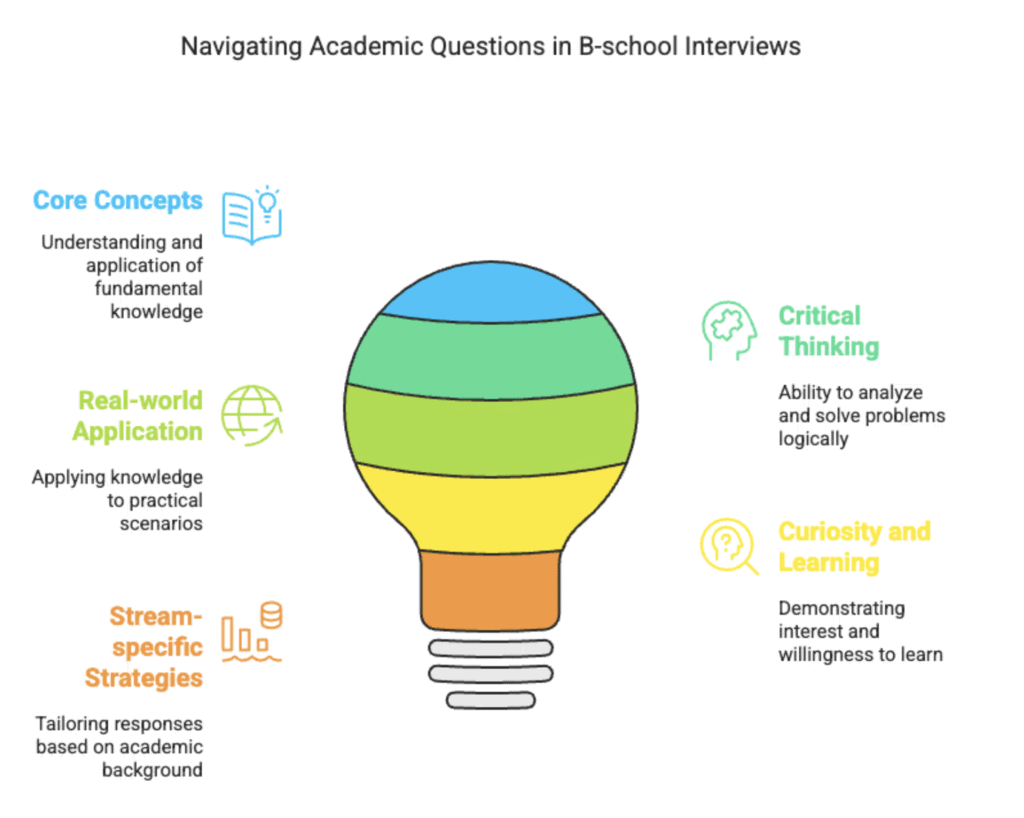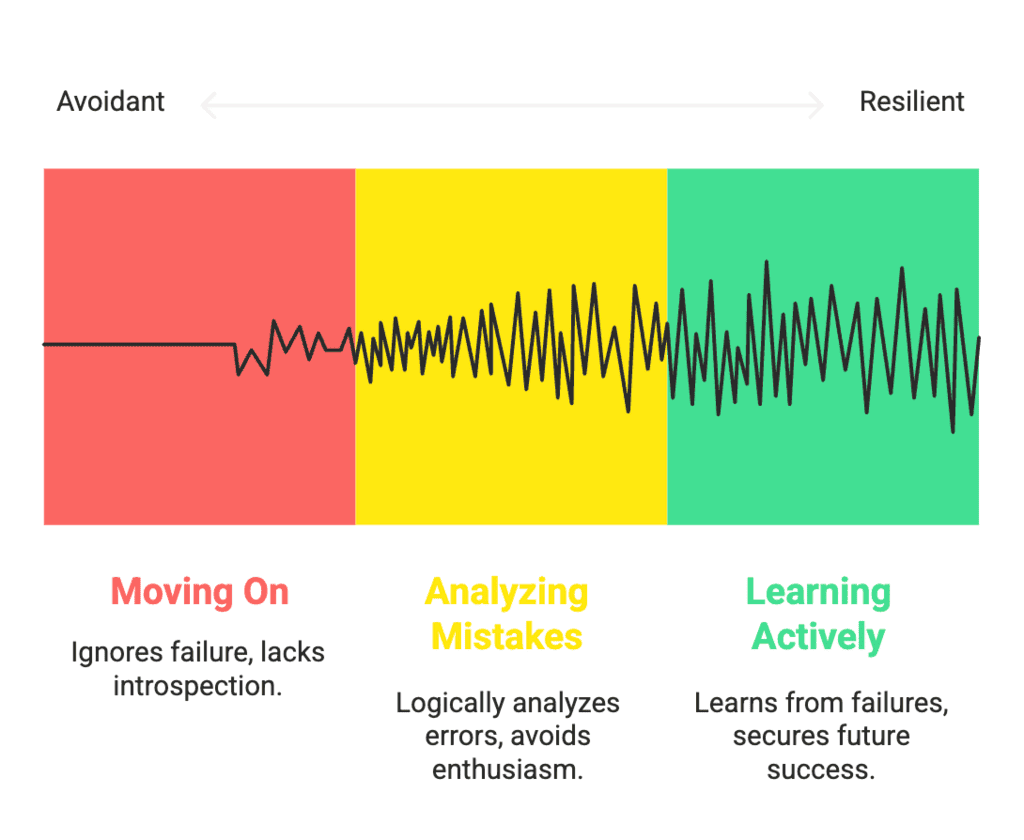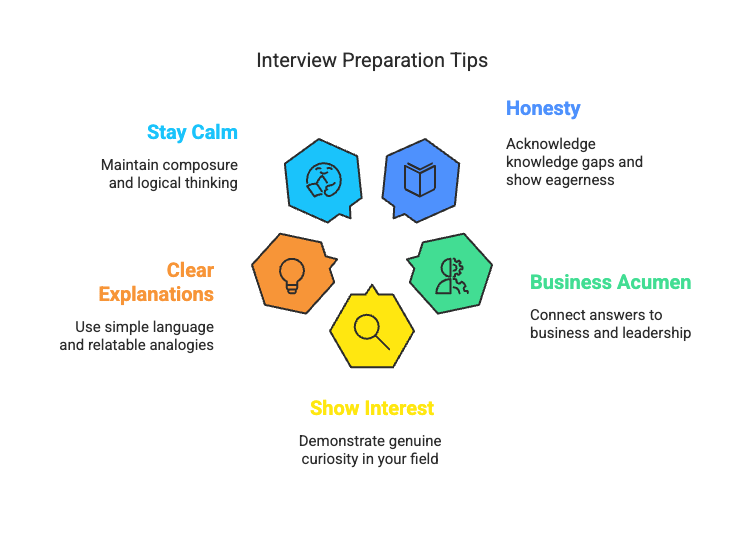Academic Questions File for CAT Interviews | CAT Interview Preparation Guide PDF Download
Introduction
Academic questions form a key component of the Personal Interview (PI) at top B-schools such as IIMs, XLRI, FMS, SPJIMR, and others. These questions are designed to evaluate more than just your bookish knowledge. Interviewers use them to assess your:
Grasp of core concepts from your academic background
Ability to think critically and logically
Skill in applying knowledge to real-world situations
Curiosity, depth of interest, and willingness to learn
However, your approach to answering these questions should be aligned with your academic stream — whether you come from Engineering, Commerce, Arts, Science, or Management. Each stream has its own set of expectations and common areas of questioning.
This guide offers stream-specific strategies and sample responses to help you tackle academic questions effectively — not just to show what you know, but how you think.

Common Academic Interview Themes
Interviewers often explore your academic background to understand how well you've engaged with your subject and how you connect it to the larger world of management. Some recurring themes include:
Why did you choose this field?
What do you like most — and least — about your subject?
How does your academic background relate to management or business?
Can you explain a key concept from your field in simple terms?
Compare two concepts or subjects — what are their similarities or differences?
Who is your favorite professor, thinker, or theory in your field — and why?
These questions are not just about facts — they’re about reflection, clarity, and how well you understand and appreciate your academic journey. Now, let’s look at how students from different streams — Engineering, Commerce, Arts, Science, and Management — can tackle these questions effectively.
First things first: Use Positive Language
In CAT interviews, tone plays a pivotal role in shaping perceptions of a candidate’s confidence, clarity, and adaptability. A well-calibrated tone demonstrates professionalism, emotional intelligence, and the ability to handle pressure—qualities integral to leadership roles. For instance:
Question: “How do you handle failure?”
[Negative]
“I just move on and try to forget about it.”
Perception: Avoidant; shows no introspection or growth mindset.[Neutral]
“I analyse what went wrong and try to avoid similar mistakes.”
Perception: Logical but lacks enthusiasm or actionable insight.[Positive]
“I treat failures as stepping stones. For example, when my startup idea failed, I documented key learnings about market research gaps, which later helped me secure a national business plan competition.”
Perception: Reflective, resilient, and solution-oriented.

Now, let's dive into different kinds of questions you can be asked about based on your background.
1. For Engineering Graduates
Q: Why did you choose engineering?
Good Answer:
"I was always interested in problem-solving and technology. My parents encouraged me to take up engineering as it offered both stability and scope for innovation. Over time, I developed a strong liking for systems thinking and process optimisation."
Better Answer:
"Initially, I chose engineering because of its promising career opportunities. However, during my studies, I realised that I enjoy applying logic to real-world problems, especially in [specific area]. Still, I now feel that to lead innovation at scale, I need formal training in business and strategy, which is why I’m pursuing an MBA."
Q: How does your field relate to management?
Sample Answer:
"As a mechanical engineer, I learned project planning, resource allocation, and teamwork through internships. Managing timelines, coordinating with cross-functional teams, and understanding cost-benefit trade-offs gave me early exposure to managerial responsibilities."
Q: Explain a technical concept simply.
Example (Computer Science):
"Machine Learning is like teaching a child by showing examples. Instead of programming every rule, we feed data so the system learns patterns and makes decisions on its own."
2. For Commerce Graduates
Q: Why did you choose commerce?
Good Answer:
"I found economics and accounts interesting in school. Commerce offered a good balance between math and real-world applications. It also opens doors to careers in finance and business."
Better Answer:
"I’ve always been curious about how businesses function financially. Commerce helped me understand the economic forces shaping industries. Now, I want to build on this foundation with an MBA to gain strategic leadership skills."
Q: What’s the difference between accounting and finance?
Sample Answer:
"Accounting focuses on recording, summarising, and reporting financial transactions. Finance, on the other hand, involves managing money, making investment decisions, and planning for future growth."
Q: How does commerce relate to management?
Sample Answer:
"My commerce background gave me a solid understanding of financial statements, taxation, and business law — all essential for managerial decision-making. Knowing how to read a balance sheet or analyse profitability helps in strategic planning."
3. For Arts/Humanities Graduates
Q: Why did you choose arts?
Good Answer:
"I was more inclined towards literature and social sciences. I wanted to study human behaviour and society, which led me to pursue history/political science/sociology."
Better Answer:
"I chose arts because I wanted to understand the world beyond numbers and equations. Studying psychology/sociology/literature has helped me develop critical thinking, communication, and empathy — qualities I believe are vital for effective leadership in any organisation."
Q: How does your field relate to management?
Sample Answer:
"Studying sociology taught me how people interact in groups, which is directly applicable to team dynamics and organisational behaviour. Communication and negotiation skills gained from humanities are crucial in managerial roles."
Q: What’s the biggest challenge in your field?
Sample Answer:
"One challenge is that many people underestimate the value of humanities. But I see it as a strength — it gives a unique perspective on human motivation, culture, and ethics, which are increasingly important in modern leadership."
4. For Science Graduates
Q: Why did you choose science?
Good Answer:
"I was good at physics and chemistry in school. Science seemed like the logical choice to build a technical foundation."
Better Answer:
"I was fascinated by how things work at a fundamental level. Studying science sharpened my analytical thinking and research skills. While I loved the depth, I now realise I want to apply this knowledge in a broader business context, which is why I’m preparing for an MBA."
Q: How does science help in management?
Sample Answer:
"A science background teaches rigorous analysis, data interpretation, and structured thinking — all of which are essential for making informed business decisions. In fact, many successful entrepreneurs have scientific temperaments."
Q: Explain a complex concept simply.
Example (Mathematics):
"Regression analysis is a statistical tool used to understand how one variable affects another. For instance, how advertising spend impacts sales."
5. For Management Graduates (BBA/BMS)
Q: Why do you want an MBA if you’re already in management?
Sample Answer:
"While my undergraduate degree gave me a broad overview of business functions, an MBA offers deeper specialisation, better networking, and global exposure. It will help me accelerate my career and move into leadership roles faster."
Q: What’s the difference between BBA and MBA?
Sample Answer:
"BBA is more theoretical and foundational, covering all areas of business. MBA is more specialised, experiential, and practical, often involving live projects, internships, and case studies from real companies."
Q: Which management theory do you like most?
Sample Answer:
"I find Peter Drucker’s ideas very relevant. He emphasised that the purpose of a business is to create a customer, not just make a profit. This aligns with my belief that sustainable success comes from solving real problems."
Bonus Tips for All Candidates
- Don’t fake knowledge: If you don’t know something, say so politely and show willingness to learn.
- Link to management: Always try to connect your answers to business, leadership, or decision-making.
- Be curious: Show genuine interest in your field and how it relates to the world around you.
- Practice explaining concepts clearly: Use analogies and simple language.
- Stay calm and composed: You’re not expected to be perfect — but you are expected to think logically and communicate well.

Quick Recap: Dos and Don’ts
Dos:
Know your basics – Be clear on core concepts from your academic field.
Link your field to management – Show how your background adds value to an MBA.
Be honest – Admit what you don’t know instead of faking it.
Stay updated on your subjects – Be aware of recent trends and developments.
Practice mock interviews – Rehearse academic questions with feedback.
Don’ts:
Pretend to know what you don’t – It’s easy for interviewers to spot.
Ignore relevance to MBA – Always connect your knowledge to practical use.
Ramble without structure – Use clear, logical answers (STAR format helps).
Avoid current trends in your field – This shows lack of curiosity or depth.
Skip preparation for academic questions – They’re a major part of the PI.
Final Thoughts
Your academic background isn’t a limitation — it’s your unique lens for understanding the world. Top B-schools value diverse perspectives, and they’re looking for candidates who can think critically, communicate clearly, and draw connections across disciplines.
Don’t try to fit into a mold. Instead, focus on expressing how your learning journey has shaped your thinking, values, and ambitions. When you tailor your answers to reflect your experiences, interests, and future goals, you demonstrate authenticity — and that’s what leaves a lasting impression in any interview.
|
21 videos|18 docs
|
FAQs on Academic Questions File for CAT Interviews - CAT Interview Preparation Guide
| 1. What are the key preparation strategies for Engineering Graduates appearing for CAT interviews? |  |
| 2. How can Commerce Graduates effectively showcase their skills during CAT interviews? |  |
| 3. What should Arts/Humanities Graduates focus on while preparing for CAT interviews? |  |
| 4. What are the essential areas of focus for Science Graduates in CAT interviews? |  |
| 5. What tips can Management Graduates (BBA/BMS) use to excel in CAT interviews? |  |





















